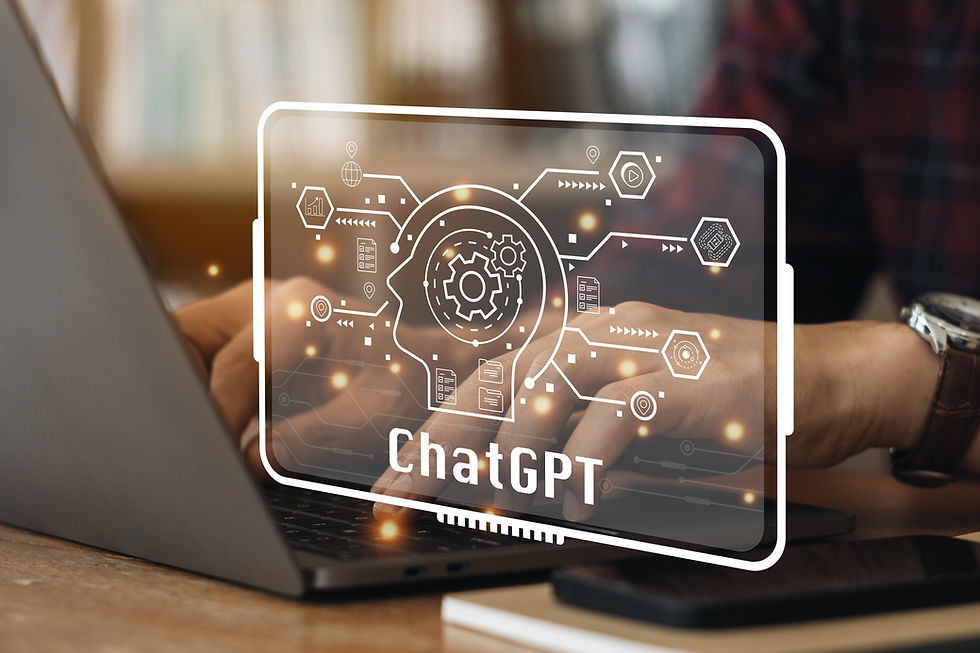What You Share With ChatGPT Could End Up on Google. Here’s What You Need to Understand.
- Kirra Pendergast
- Aug 2, 2025
- 3 min read

We’re living through a moment where digital instincts haven't caught up with digital reality. A moment where a feature can feel like a private diary, but act like a press release. And most people have no idea it's happening.
ChatGPT’s “Share” button is one of those design sleights-of-hand that seems harmless. Elegant. Convenient. You’ve just had a conversation with the AI—maybe it helped you draft a policy, unpack a trauma, or name the thing you couldn't say out loud. It wraps the entire thread in a link and offers it up: clean, clickable, ready to pass on. And you do, send it to a colleague, a client, a classroom. Click. Copied. Shared.
But here’s the part the interface doesn’t tell you: those links are public. Not semi-public. Not “only if you have the URL.” Public. Search-indexable. Discoverable. Crawled by Google. And increasingly, they’re turning up in live search results.
Paste the right search string and you’ll surface complete ChatGPT conversations, no account names, sure, but full context. Real queries. Real answers. Real risks.
Now, think carefully about what people are putting into these exchanges.
These aren’t sanitised brainstorming sessions or harmless hypothetical debates. These are unfiltered disclosures: abuse histories, panic spirals, identity crises. Private medical queries. Legal what-ifs. Draft resignation letters. Notes to dead parents. Teachers navigating disclosures. Kids navigating identity. It’s not content—it’s people, mid-process.
They’re typing into this box because it feels safe. Not performative like social media. Not surveilled like a search. A liminal space—quiet, responsive, seemingly contained.
But that feeling? It’s a design illusion.
Because when that link gets indexed—by accident or indifference—that illusion breaks. The damage isn't theoretical. It’s immediate. And while you might be “anonymous,” the breadcrumbs are real: phrasing, context, location cues, references. It doesn’t take much to connect the dots if someone is motivated. Or careless. Or cruel.
This isn’t an indictment of OpenAI or a rejection of the tool. It’s a call to close the gap between what people think the system is doing, and what it’s actually doing under the hood.
So, What Do We Do?
If you’re someone people turn to for guidance on tech, safety, digital wellbeing this is your cue to step in. Not with fear, but with clarity.
Don’t just warn people. Show them how the system works. Teach them where the guardrails fail. Give them the language to talk about digital trust in terms that matter.
Here’s where to start:
Never assume the Share button is private.If you wouldn’t publish it on a website, don’t send it via a shared ChatGPT link. If it’s raw, intimate, legal, or painful it stays out.
Stop entering identifiable information.Not just names. Think: diagnoses, workplace incidents, school names, birthdays, subtle phrasing. These aren’t just details, they’re identifiers in the wrong hands.
Turn off memory.This doesn’t erase what’s already there, but it stops the model from pulling your past into your present. It narrows the trail.
Opt out of training.In your settings, you can choose not to have your chats used to train future models. It’s not perfect, but it’s a start.
Audit your privacy settings regularly.OpenAI is moving toward greater transparency, but default settings don’t protect everyone. Make checking those settings part of your digital hygiene.
The Core Truth
“Anonymous” isn’t the same as “protected.”
The real risk lives in the gap between what users expect and what the system does. That’s where harm blooms. That’s where people get blindsided.
People trust what feels private. But the interface doesn’t show you the index bot. It doesn’t flash a warning when your trauma turns into a URL.
So treat every interaction with AI like it could one day be read aloud in a courtroom, or in front of your board, or by your 13-year-old.
Because for too many people already—it has.
Don’t let a private moment become a public fallout.
Build the literacy. Spread the warning. And keep pushing for infrastructure that matches the stakes. Contact us for up to date education and support - hello@ctrlshft.global




Comments